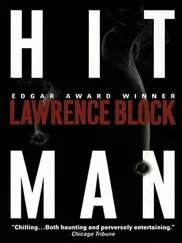John Perkins - Confessions of an Economic Hit Man
Здесь есть возможность читать онлайн «John Perkins - Confessions of an Economic Hit Man» весь текст электронной книги совершенно бесплатно (целиком полную версию без сокращений). В некоторых случаях можно слушать аудио, скачать через торрент в формате fb2 и присутствует краткое содержание. Жанр: economics, на английском языке. Описание произведения, (предисловие) а так же отзывы посетителей доступны на портале библиотеки ЛибКат.
- Название:Confessions of an Economic Hit Man
- Автор:
- Жанр:
- Год:неизвестен
- ISBN:нет данных
- Рейтинг книги:4 / 5. Голосов: 1
-
Избранное:Добавить в избранное
- Отзывы:
-
Ваша оценка:
- 80
- 1
- 2
- 3
- 4
- 5
Confessions of an Economic Hit Man: краткое содержание, описание и аннотация
Предлагаем к чтению аннотацию, описание, краткое содержание или предисловие (зависит от того, что написал сам автор книги «Confessions of an Economic Hit Man»). Если вы не нашли необходимую информацию о книге — напишите в комментариях, мы постараемся отыскать её.
Confessions of an Economic Hit Man — читать онлайн бесплатно полную книгу (весь текст) целиком
Ниже представлен текст книги, разбитый по страницам. Система сохранения места последней прочитанной страницы, позволяет с удобством читать онлайн бесплатно книгу «Confessions of an Economic Hit Man», без необходимости каждый раз заново искать на чём Вы остановились. Поставьте закладку, и сможете в любой момент перейти на страницу, на которой закончили чтение.
Интервал:
Закладка:
In the final analysis, the entire sequence of events was a calamity for the Bush administration. As the Los Angeles Times reported,
Bush administration officials acknowledged Tuesday that they had discussed the removal of Venezuelan President Hugo Chávez for months with military and civilian leaders from Venezuela… The administration’s handling of the abortive coup has come under increasing scrutiny. 10
It was obvious that not only had the EHMs failed, but so had the jackals. Venezuela in 2003 turned out to be very different from Iran in 1953. I wondered if this was a harbinger or simply an anomaly — and what Washington would do next.
At least for the time being, I believe a serious crisis was averted in Venezuela — and Chávez was saved — by Saddam Hussein. The Bush administration could not take on Afghanistan, Iraq, and Venezuela all at once. At the moment, it had neither the military muscle nor the political support to do so. I knew, however, that such circumstances could change quickly, and that President Chávez was likely to face fierce opposition in the near future. Nonetheless, Venezuela was a reminder that not much had changed in fifty years — except the outcome.
CHAPTER 34. Ecuador Revisited
Venezuela was a classic case. However, as I watched events unfolding there, I was struck by the fact that the truly significant battle lines were being drawn in yet another country. They were significant not because they represented more in terms of dollars or human lives, but because they involved issues that went far beyond the materialistic goals that generally define empires. These battle lines extended beyond the armies of bankers, business executives, and politicians, deep into the soul of modern civilization. And they were being established in a country I had come to know and love, the one where I had first worked as a Peace Corps volunteer: Ecuador.
In the years since I first went there, in 1968, this tiny country had evolved into the quintessential victim of the corporatocracy. My contemporaries and I, and our modern corporate equivalents, had managed to bring it to virtual bankruptcy. We loaned it billions of dollars so it could hire our engineering and construction firms to build projects that would help its richest families. As a result, in those three decades, the official poverty level grew from 50 to 70 percent, under- or unemployment increased from 15 to 70 percent, public debt increased from $240 million to $16 billion, and the share of national resources allocated to the poorest citizens declined from 20 percent to 6 percent. Today, Ecuador must devote nearly 50 percent of its national budget simply to paying off its debts — instead of to helping the millions of its citizens who are officially classified as dangerously impoverished. 1
The situation in Ecuador clearly demonstrates that this was not the result of a conspiracy; it was a process that had occurred during both Democratic and Republican administrations, a process that had involved all the major multinational banks, many corporations, and foreign aid missions from a multitude of countries. The United States played the lead role, but we had not acted alone.
During those three decades, thousands of men and women participated in bringing Ecuador to the tenuous position it found itself in at the beginning of the millennium. Some of them, like me, had been aware of what they were doing, but the vast majority had merely performed the tasks they had been taught in business, engineering, and law schools, or had followed the lead of bosses in my mold, who demonstrated the system by their own greedy example and through rewards and punishments calculated to perpetuate it. Such participants saw the parts they played as benign, at worst; in the most optimistic view, they were helping an impoverished nation.
Although unconscious, deceived, and — in many cases — self-deluded, these players were not members of any clandestine conspiracy; rather, they were the product of a system that promotes the most subtle and effective form of imperialism the world has ever witnessed. No one had to go out and seek men and women who could be bribed or threatened — they had already been recruited by companies, banks, and government agencies. The bribes consisted of salaries, bonuses, pensions, and insurance policies; the threats were based on social mores, peer pressure, and unspoken questions about the future of their children’s education.
The system had succeeded spectacularly. By the time the new millennium rolled in, Ecuador was thoroughly entrapped. We had her, just as a Mafia don has the man whose daughter’s wedding and small business he has financed and then refinanced. Like any good Mafiosi, we had taken our time. We could afford to be patient, knowing that beneath Ecuador’s rain forests lies a sea of oil, knowing that the proper day would come.
That day had already arrived when, in early 2003, I wound my way from Quito to the jungle town of Shell in my Subaru Outback. Chávez had reestablished himself in Venezuela. He had defied George W. Bush and had won. Saddam was standing his ground and was preparing to be invaded. Oil supplies were depleted to their lowest level in nearly three decades, and the prospects of taking more from our prime sources looked bleak — and therefore, so did the health of the corporatocracy’s balance sheets. We needed an ace in the hole. It was time to cut away our Ecuadorian pound of flesh.
As I drove past the monster dam on the Pastaza River, I realized that here in Ecuador the battle was not simply the classic struggle between the rich of the world and the impoverished, between those who exploit and the exploited. These battle lines would ultimately define who we are as a civilization. We were poised to force this tiny country to open its Amazon rain forests to our oil companies. The devastation that would result was immeasurable.
If we insisted on collecting the debt, the repercussions would go far beyond our abilities to quantify them. It was not just about the destruction of indigenous cultures, human lives, and hundreds of thousands of species of animals, reptiles, fish, insects, and plants, some of which might contain the undiscovered cures to any number of diseases. It was not just that rain forests absorb the deadly greenhouse gases produced by our industries, give off the oxygen that is essential to our lives, and seed the clouds that ultimately create a large percentage of the world’s fresh water. It went beyond all the standard arguments made by ecologists for saving such places, and reached deep into our souls.
If we pursued this strategy, we would continue an imperialist pattern that had begun long before the Roman Empire. We decry slavery, but our global empire enslaves more people than the Romans and all the other colonial powers before us. I wondered how we could execute such a shortsighted policy in Ecuador and still live with our collective conscience.
Peering through the window of the Subaru at the deforested slopes of the Andes, an area that during my Peace Corps days had been lush with tropical growth, I was suddenly surprised by another realization. It dawned on me that this view of Ecuador as a significant battle line was purely personal, that in fact every country where I had worked, every country with resources coveted by the empire, was equally significant. I had my own attachment to this one, which stemmed from those days back in the late 1960s when I lost my innocence here. However, it was subjective, my personal bias.
Though the Ecuadorian rain forests are precious, as are the indigenous people and all the other life forms that inhabit them, they are no more precious than the deserts of Iran and the Bedouins of Yamin’s heritage. No more precious than the mountains of Java, the seas off the coast of the Philippines, the steppes of Asia, the savannas of Africa, the forests of North America, the icecaps of the Arctic, or hundreds of other threatened places. Every one of these represents a battle line, and every one of them forces us to search the depths of our individual and collective souls.
Читать дальшеИнтервал:
Закладка:
Похожие книги на «Confessions of an Economic Hit Man»
Представляем Вашему вниманию похожие книги на «Confessions of an Economic Hit Man» списком для выбора. Мы отобрали схожую по названию и смыслу литературу в надежде предоставить читателям больше вариантов отыскать новые, интересные, ещё непрочитанные произведения.
Обсуждение, отзывы о книге «Confessions of an Economic Hit Man» и просто собственные мнения читателей. Оставьте ваши комментарии, напишите, что Вы думаете о произведении, его смысле или главных героях. Укажите что конкретно понравилось, а что нет, и почему Вы так считаете.












